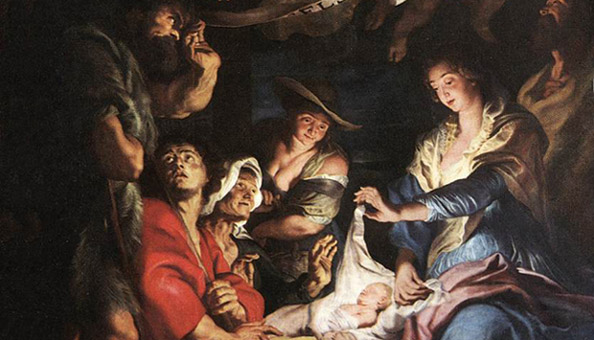Christ is Born! Come, Eternal Life!
December 24, 2015

Direct Link to Latest News
December 24, 2015

Robert K said (December 24, 2015):
Christianity is not just an abstract faith, but one entailing beneficent worldly action.
Many people participate in projects to help others. This is to be applauded. However, one has to wonder why so few involved in these "good works" do not also expose how the financial system constantly attacks people's freedom and well-being by burdening their lives with artificial debt. In this age of robotic production, a money system designed to benefit all, rather than to fulfil the power mongering ambitions of a few, could make poverty and material insecurity things of the past. It's hard to escape the disturbing conclusion that most charity as practiced in our time actually operates as an integral part of the perpetuation of the monopoly of finance.
Here is a link to a talk on these matters that your readers might find interesting: https://www.youtube.com/watch?v=6DH_a6589ik
Attachments area
Dan said (December 24, 2015):
Truth doesn't change. Not in centuries or thousands of years. Authenticity is the word for being honest with yourself and others. The power of the Gospels is the biography of a man who lived a completely authentic life. Everybody else in the story were always trying to find ways around it. Just the presence of this entirely authentic man in relation to others made many want to learn from him; others wanted to kill him.
Everybody knows authenticity is elusive for us. Even if we don't lie cheat and steal, everyone is falls short in other ways: we nod our heads when we really disagree. We stay silent when we should speak up.
Not only was Jesus absolutely truthful with himself and others, he was authentic before God, and that's the meaning of 'son of God'. THAT is how the Almighty creator could speak through Jesus
Words falter to explain how the creator of all that is would become a mortal man, like you and me. We know the 'flesh is weak', and even if we believe the soul is immortal, we may think, "God is infinite, but a man is finite. How can a man be God?" They said that two thousand years ago and accused Jesus of blasphemy. Today atheists use the same argument to accuse Christianity of fraud.
But is it so easy to dismiss the thought that we are reflections of our creator? That's the real premise of Christianity: that God created mankind in His image, and 'God so loved the world' that His Word became a man.
Tony B said (December 24, 2015):
You could not have picked a better message for Christmas than today's post. Cuts to the chase, something protestantism dares never to try as it will always fail since it is a protest against real godliness.
I'm happy that you already have a good understanding of what I am fighting to learn in my old age. The mind knows it well enough but real, spiritual, love, the key to eternal life, is still pretty much foreign to me. Too long immersed in a world that is all material, as I have mentioned to you before.
However, I finally realize that the interplay of Christ in our present timeliness as a bridge within us to eternity is a must for humans, the necessary starting point. That's exactly why the devil has done all in his power to cause us to forget and avoid the real world we can't see with our eyes. That's what faith, and the war against it, is all about. But in reality, it is of the understanding heart, not the spiritually uncomprehending head.
Deidre said (December 24, 2015):
I’ve been reading your website for years now and appreciate your work. I was raised Roman Catholic; born again in 1987. If one is born again of the Holy Spirit, there is no need to ‘wait’ on Christ coming; He Is come in the flesh (‘your’ flesh). Yes He will bodily return as stated in Zechariah 13, 14 and in the gospels. True Israel is spiritual (Galatians 4) and is present in the body (temple) of each believer in Christ Jesus.
Catholics, are Jews who ‘go all the way’. All the way with what? With Mystery Babylon’s religion. For any and all reading this, please heed the words of the LORD. “Come out of ‘her’ MY people†(Revelation 18, 2 Cor 6) Christmas is a hot/cold synthesis of a very pagan holiday. No true believer should have anything to do with it, no matter how nostalgic one gets!
Henry Makow received his Ph.D. in English Literature from the University of Toronto in 1982. He welcomes your comments at
Peter said (December 25, 2015):
The Mystery of Time is captured in this essay. God bless you and Merry Christmas.